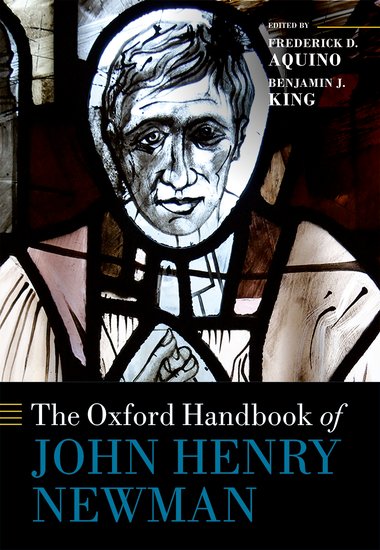Blessed John Henry Newman famously said, “To live is to change, and to be perfect is to have changed often.” It is true of every life, but eminently of his own. He lived almost 90 years, moving in his sympathies from evangelical to “high church” Anglican to Roman Catholic — and his years as a Catholic were hardly static.
His collected works run to more than 30 volumes, including works of philosophy, history, sermons, fiction, and poetry.
How to get a handle on such a life?
One way is “The Oxford Handbook of John Henry Newman,” a 604-page omnibus of contributions by 27 Newman scholars from around the world. Divided into four parts, the book considers his historical context, his influences, his themes, and his ongoing significance.
Every chapter is a fascinating “deep dive” into one important aspect of Newman’s life — his literary style, for example, or the influence of the Church Fathers, or his place in the “print culture” of his time.
His most common themes were topics that divided Anglicans from Roman Catholics: Marian doctrine, the structure of the Church, and the idea of justification; and each disputed area gets its own chapter-long intensive study.
Since Newman’s conversion turned on questions of authority, Ryan Marr’s chapter on infallibility is especially helpful. Newman lived in a time of fierce debate over the question. He was a new Catholic, but already an intellectual leader.
In the years leading up to the First Vatican Council — and continuing in the years afterward — he “changed often” in his opinions in the matter. But his changes charted an organic development.
He had to allay the fears of his Protestant countrymen, who feared that infallibility made Catholics potentially disloyal as British subjects. After all, what if the pope commanded them to rise up against the monarch?
But Newman also sought to temper the enthusiasms of “ultramontane” Catholics, who wished the pope’s maximal authority to extend beyond doctrinal matters, even into practical politics. His opinions on infallibility were often misunderstood and misconstrued by controversialists. But he managed to forecast the Council’s decision rather exactly.
The scholarly contributors to the “Handbook” approach Newman from a variety of religious perspectives, both Protestant and Catholic. It is interesting to see Newman’s continuing influence among Anglicans.
At $150, the “Oxford Handbook” falls beyond the budget of people merely curious about Newman. For them, the best introduction is Ian Ker’s “John Henry Newman: A Biography,” which is also published by Oxford University Press.
Many who begin with the biography, however, will want to know more — and the “Oxford Handbook” is the handiest guide to the wide world of Newman’s achievement as well as the subsequent study of his life.
Mike Aquilina is a contributing editor to Angelus News and the author of many books, including “Take Five: Meditations with John Henry Newman,” co-authored with Father Juan Velez.
SPECIAL OFFER! 44 issues of Angelus for just $9.95! Get the finest in Catholic journalism with first-rate analysis of the events and trends shaping the Church and the world, plus the practical advice from the world’s best spiritual writers on prayer and Catholic living, along with great features about Catholic life in Los Angeles. Subscribe now!

